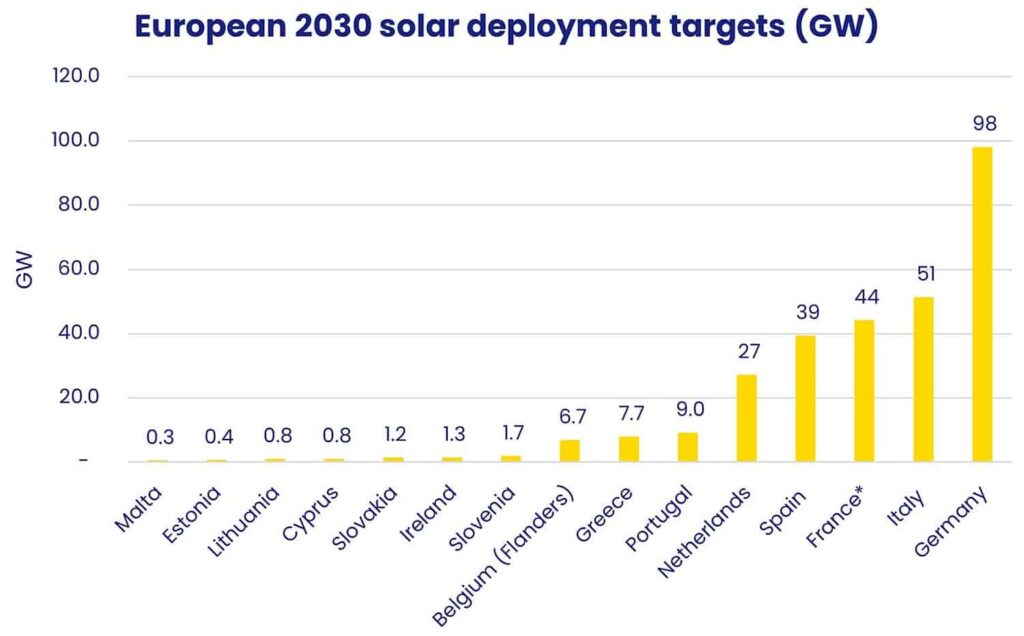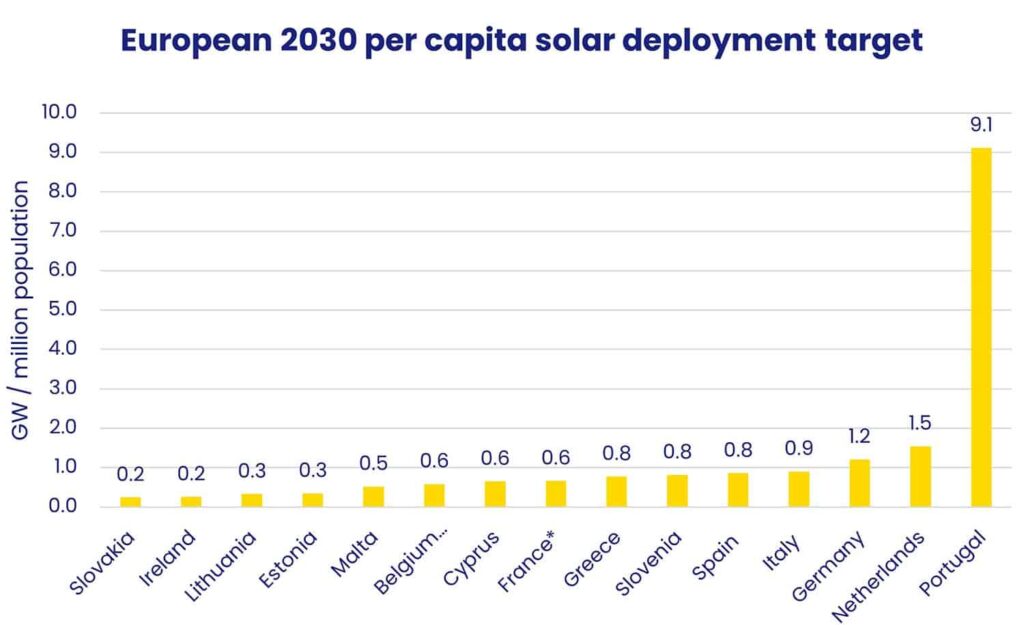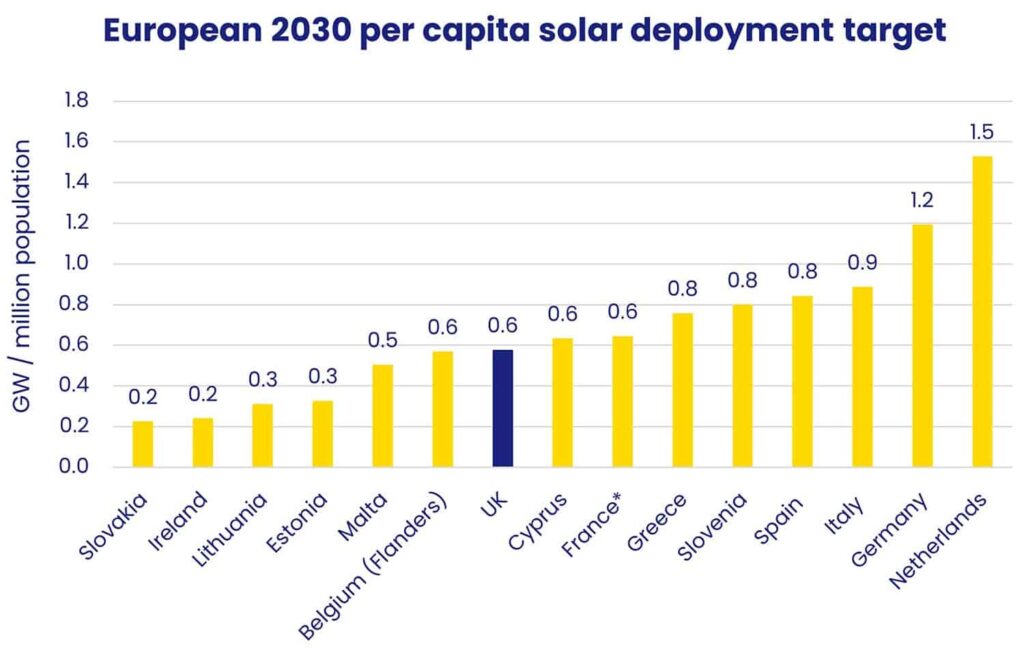
- Home
- /
- Blog Standard
- /
- CC Solar
- /
- UK Solar Ambitions – How do they compare?

Solar Energy UK has shown how the UK can achieve 40GW of solar energy generation by 2030. This is the level of deployment analysis by organisations such as the Climate Change Committee suggests is consistent with the UK achieving a net zero economy by 2050.
But how does this compare with other European countries? Solar Energy UK looked at deployment and population figures to put this in context, based on data from Solar Power Europe and the World Bank.
The graph below shows European solar deployment targets.

Germany, which has the largest existing solar market, also has the highest level of solar ambition for the next decade. It is targeting nearly 100GW of deployed capacity by 2030. This is nearly double the next highest target, of 51GW, which Italy intends to deploy. Target is for 2028.The next graph, below, shows the same European solar deployment targets, adjusted for population size.

This shows that, on a per capita basis, Portugal has by far the highest level of ambition. It intends to deploy more than six times as much solar power per million residents than any other country.
*Target is for 2028
Portugal is clearly an outlier though. Removing it from the graph shows that the majority of countries across Europe intend to deploy between 0.5 and 0.8GW of solar power per million inhabitants by the end of the decade.

This would be a good start. However, the British government has yet to commit to such a target, which in any case would be the minimum level consistent with the UK meeting its climate change commitments. And this level of ambition would also still be less than half that of two other northern European economies, Germany and the Netherlands.
Solar Energy UK will therefore continue to call on the government to commit to 40GW by 2030 – and to develop plans to build on this. To reach the 2030 target, the UK could implement a range of measures.
These include regular access to renewable energy auctions for utility scale projects, amending the business rates regime for commercial scale projects, and developing a long-term retrofit programme for residential rooftop projects.